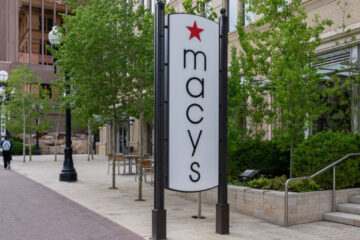Uber has become one of the most used in-app ride and delivery services in the U.S. Since launching in 2009, it quickly grew a huge presence in 70 countries worldwide and has around 171 million monthly active users.
To incentivize customer loyalty and maintain its continuous growth, Uber released Uber One in 2021, a paid membership program that rewards customers with savings and exclusive perks when using its app for rides and food delivery for a subscription cost of $9.99 per month or $99.99 per year in the U.S. Some of the perks and savings include $0 delivery fees, credits to use on rides and orders, and exclusive discounts and deals.
💵💰 Don’t miss the move: Subscribe to TheStreet’s free daily newsletter 💵💰
This subscription service has reached 30 million members, representing a 60% growth year over year as reported in the company’s fourth-quarter earnings for fiscal 2024.
Related: Popular delivery service makes harsh decision amid struggles
Although Uber has built its loyalty business at an unbelievable rate, recent accusations, if substantiated, might leave the company owing monetary restitution.
Uber has been sued by the FTC over alleged deceptive practices.
Image source: Richard Baker/Getty Images
The FTC is suing Uber over alleged deceptive practices
The Federal Trade Commission filed a lawsuit against Uber (UBER) on April 21, claiming the company charged customers for Uber One subscriptions without their consent, didn’t follow through with promised savings, and failed to fulfill its cancellation promise by making it difficult for users.
Related: Popular online retailer CEO spotlights trade war solution
“Americans are tired of getting signed up for unwanted subscriptions that seem impossible to cancel,” said FTC Chairman Andrew N. Ferguson. “The Trump-Vance FTC is fighting back on behalf of the American people. Today, we’re alleging that Uber not only deceived consumers about their subscriptions, but also made it unreasonably difficult for customers to cancel,” he added.
Details of the FTC’s complaint reveal shocking claims against Uber
The FTC’s complaint, filed in the U.S. District Court for the Northern District of California, alleges that although Uber offers a free trial that can be cancelled anytime with no charge during the trial period, some customers were automatically charged for the following month before the trial ended.
When trying to cancel, the complaint claims that Uber made it extremely difficult, forcing customers to navigate up to 23 screens and take as many as 32 actions.
During the cancellation process, Uber also requires customers to explain why they want to end their subscription, encourages them to pause it instead, and gives them more offers as an incentive to stay.
If all cancellation efforts failed, some users claimed they were told to contact customer support but were given no contact information, and others stated they were charged for another month while awaiting a reply from customer support.
The final decision could affect the future of Uber’s lucrative subscription program
If the alleged claims are substantiated, Uber would be found in violation of the FTC Act and the Restore Online Shoppers’ Confidence Act (ROSCA). These acts require online retailers to clearly disclose the terms of their services, obtain consumers’ consent before charging them for it, and provide an easy cancellation process for a recurring subscription.
More Retail News:
Walmart rivals Target beauty expansion with unexpected launchTarget issues concerning recall on baby productStarbucks to unveil a surprising, first-of-its-kind store
The FTC seeks an end to future violations by the company and monetary restitution as deemed appropriate for the acts. The court will decide the case in the upcoming days.
If Uber is found in violation, it could have negative financial repercussions for the company.
Related: Veteran fund manager unveils eye-popping S&P 500 forecast


